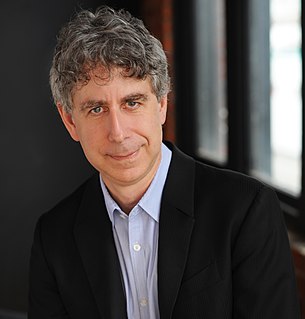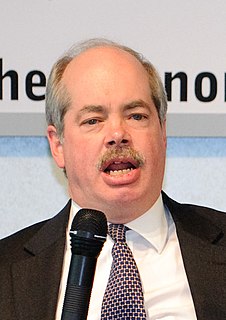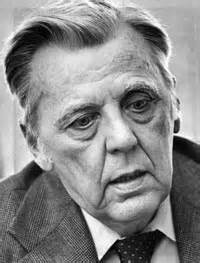A Quote by Joel Bakan
The genius of the corporation as a business form, and the reason for its remarkable rise over the last three centuries , was - and is - its capacity to combine the capital, and thus the economic power, of unlimited numbers of people.
Related Quotes
The 1,230 gigawatts (GW) of renewable power generating capacity in place at the end of 2009 now constitutes just over 25 percent of total generating capacity worldwide. This is over three times nuclear generating capacity and roughly 38 percent of the capacity of fossil fuel-burning power plants worldwide.
Henceforward the Christian Churches having a form of godliness, but denying the power thereof, came into the hands of the Encratites: and the Heathens, who in the fourth century came over in great numbers to the Christians, embraced more readily this sort of Christianity, as having a greater affinity with their old superstitions, than that of the sincere Christians; who by the lamps of the seven Churches of Asia, and not by the lamps of the Monasteries, had illuminated the Church Catholic during the three first centuries.
Capital, never concerned with distribution, is now less and less concerned with production. Capital is driving for power, for the control over markets, lands, resources. Capital, in corporate hands, can move anywhere and thus demand and get the utmost in concessions and privileges as well as the freedom to operate in the interest of ever-increasing wealth and assets.
Thus, the capital owner is not a parasite or a rentier but a worker - a capital worker. A distinction between labor work and capital work suggests the lines along which we could develop economic institutions capable of dealing with increasingly capital-intensive production, as our present institutions cannot.
The predominant teachings of this age are that there are no limits to man's capacity to govern others and that, therefore, no limitations ought to be imposed upon government. The older faith, born of long ages of suffering under man's dominion over man, was that the exercise of unlimited power by men with limited minds and self-regarding prejudices is soon oppressive, reactionary, and corrupt. The older faith taught that the very condition of progress was the limitation of power to the capacity and the virtue of rulers.
If you go out into the real world, you cannot miss seeing that the poor are poor not because they are untrained or illiterate but because they cannot retain the returns of their labor. They have no control over capital, and it is the ability to control capital that gives people the power to rise out of poverty.
I believe the power of observation in numbers of very young children to be quite wonderful for its closeness and accuracy. Indeed, I think that most grown people who are remarkable in this respect, may with greater propriety be said not to have lost the faculty, than to have acquired it; the rather, as I generally observe such men to retain a certain freshness, and gentleness, and capacity of being pleased, which are also an inheritance they have preserved from their childhood.
We cannot escape our destiny, nor should we try to do so. The leadership of the free world was thrust upon us two centuries ago in that little hall of Philadelphia. In the days following World War II, when the economic strength and power of America was all that stood between the world and the return to the dark ages, Pope Pius XII said, 'The American people have a great genius for splendid and unselfish actions. Into the hands of America God has placed the destinies of an afflicted mankind.' We are indeed, and we are today, the last best hope of man on earth.
The concept of unlimited expansion that alone can fulfill the hope for unlimited accumulation of capital, and brings about the aimless accumulation of power, makes the foundation of new political bodies - which up to the era of imperialism always had been the upshot of conquest - well-nigh impossible.
Over the years, the U.S. economy has shown a remarkable ability to absorb shocks of all kinds, to recover, and to continue to grow. Flexible and efficient markets for labor and capital, an entrepreneurial tradition, and a general willingness to tolerate and even embrace technological and economic change all contribute to this resiliency.






































